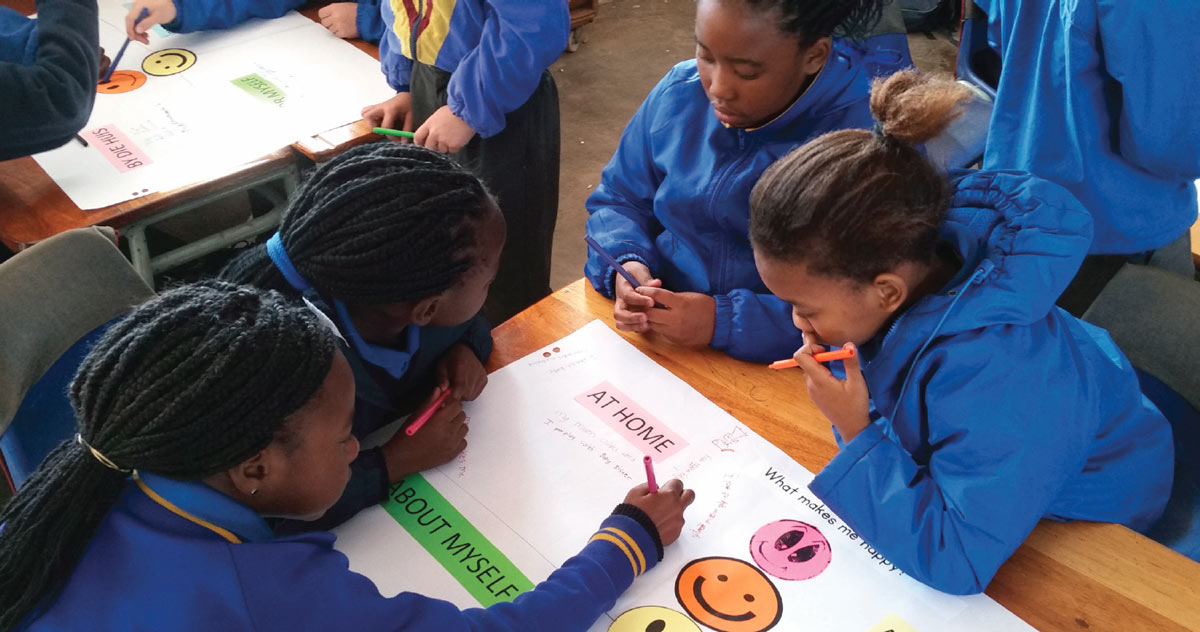Two research projects in the Institute for Food, Nutrition and Well-being (IFNuW) are centred on schools as sites for social change and, in particular, on school-based interventions related to nutrition practices, as well as the physical health and socio-emotional well-being of primary school children in resource-constrained communities. The possibility of enhancing the holistic well-being of primary school children who face vulnerability due to poverty and related risk factors implies the potential secondary outcome of changed lifestyle patterns among children and perhaps their families.
The first project started in 2012 in three township schools in the Bronkhorstspruit area, South Africa, involving a total of 1 465 Grade 4 to 6 learners and the teachers responsible for the Life Skills and Natural Sciences subjects. The second project started in 2014 and built on the first study. It involves a partnership with Fordham University, New York City, USA and an intervention study in two primary schools in the greater Tshwane region with 330 Grade 1 to 3 learners, and 240 learners in the same grades in the Bronx, New York City.
For both projects, an initial assessment of learners’ health and well-being was conducted, which provided important baseline data for the development and implementation of the two school-based interventions. Both projects have been developed in a participatory manner, involving teachers and parents of the respective communities. Besides classroom-based activities, the interventions involve home-based activities to include collaboration between child-participants and their parents.
Post-intervention data indicate an increased awareness among the child-participants about healthy eating and dietary patterns. Their knowledge about nutrition, food choice, portion sizes and the food pyramid increased as a result of their participation in the project. Furthermore, preliminary results indicate that children conveyed messages about healthy eating and food consumption practices to their parents. Parents have, as a result, become more aware of healthy eating habits and started questioning the food and nutrition-related choices they have been making.
In terms of physical performance and healthy lifestyles, findings from the project indicate an increase in the levels of fitness of children. In addition, both teachers and parents expressed the view that children had displayed heightened awareness of the importance of exercise and physical fitness after participating in the interventions. According to the teachers, child-participants increasingly started to compare themselves with their peers which, in turn, motivated them to improve their own performance.
 Schools are being used as research sites for nutriton-related education and awareness
Schools are being used as research sites for nutriton-related education and awareness